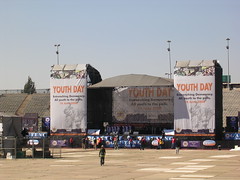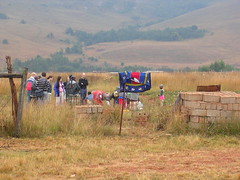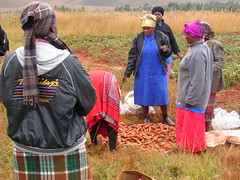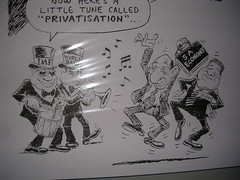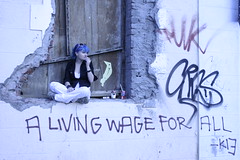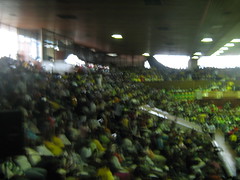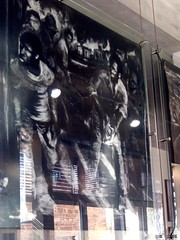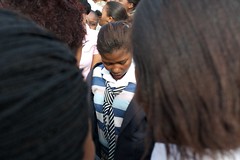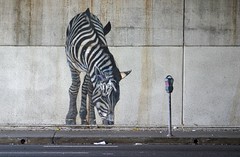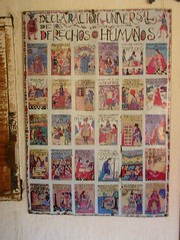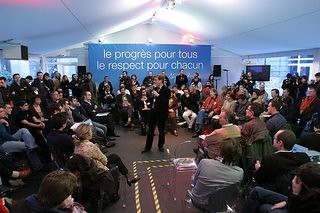
success at progressive london

The organisation I help run - Compass Youth held a highly successful workshop and debate at the Progressive London Conference. Over fifty people took part and the results of the 'progressive future' ideas and campaigns will be announced shortly.
Compass Youth Obama Campaign Workshop
Thursday 12th February, 6.30pm,
House of Commons (Committee Room 6)
Obama won the Democratic nomination and then the American Presidency on the back of inspiring and innovative campaigning. Not only did he offer a refreshingly optimistic and hopeful message, but he harnassed technology in new ways to communicate with and mobilise his supporters.
There is much the progressive left can learn from his campaigning techniques, and with that in mind Compass Youth has organised a campaign workshop with three excellent speakers:
Matthew McGregor worked for internet strategy company Blue State Digital for three months during the Obama campaign, and has now set up Blue State Digital's London office. He also ran Jon Cruddas' deputy leadership campaign, winner of Channel 4's 'Political Campaign of the Year' award. He will talk about what set the Obama campaign apart, and what we can learn from it in the UK.
Tom Miller from Compass Youth has blogged for a number of years, now doing so on several platforms, including his own; newerlabour, and LabourList, the newly launched website which aims to provide a space for Labour-based debate. He will discuss the current use of technology in British politics and where things are heading.
Max Freedman is a Parliamentary researcher and the Prospective Parliamentary Candidate for Kingston and Surbiton. He helped canvass in Ohio during the Obama campaign, and will about how the field campaign operated so effectivly.
For more information or to book a place please contact youthchair@compassonline.org.
"The crisis changes nothing"
The crisis of global capital and the lefts reaction to globalisation; a Compass Youth think-piece - Adrian Bua-Roberts:
"...if the left reverts to the comfort zone it naturally finds within statist discourse it is surrendering its chance to influence the reformation of the transnational state structures within which capital is continually entrenching its dominance.
It is of crucial importance that progressives and the left realise this. Organized labour, acting within the nation state framework, has proved structurally incapable of combating the increased transnational coordination of capital. Improvements in communication and technology have enabled capital to tap into reserve armies of poverty stricken workers around the world, pitching their governments against each other to become more "competitive" in what amounts to a regulatory race to the bottom. In the West, this has began to dissolve the myriad of rights gained through centuries of class struggles and has created a huge downward pressure of wages. Stagnating wages led to increased debt, feeding the capitalist systems' fetish for consumption, laying much of the groundwork for the present crisis."
Read the full article on the compass website.
Finally a word from our friends:

President Bush backed US 'Missile Defence' since he was elected in 2000, including unilaterally withdrawing from the Anti-Ballistic Missile Treaty with Russia in 2001. Designed to give the US military 'full spectrum dominance,' it is destabilising relations with Russia and causing concern across Europe.
President Barack Obama has not yet given his full support to the system - join us in sending him a clear message of opposition in his first days as President.
Speakers include the Chair of the European Scrutiny Committee, Michael Connarty MP, Labour MP Jeremy Corbyn, and Green MEP Jean Lambert, who will be joined by parliamentarians and campaigners from Germany, the Czech Republic and Poland.
The conference will be held on Saturday 31st January from 10am-5pm at SOAS, University of London. See the Europe Against US Missile Defence Conference page for full details.
To register email campaigns@cnduk.org or phone 0207 700 2393 and click here to download a leaflet. This e-mail address is being protected from spam bots, you need JavaScript enabled to view it




